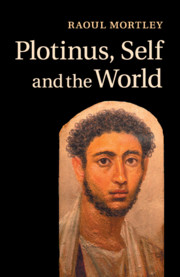Book contents
- Frontmatter
- Contents
- Preface
- Introduction
- 1 The individuated self and memory
- 2 Memory and forgetting
- 3 Ignorance, love and play
- 4 Plotinus’ Eros
- 5 The self: ‘and we too are kings’
- 6 Being and having
- 7 Self-knowledge
- 8 Art and the seduction of beauty
- 9 Face, image and the self
- Conclusion
- Bibliography
- Index
- References
2 - Memory and forgetting
Published online by Cambridge University Press: 05 October 2014
- Frontmatter
- Contents
- Preface
- Introduction
- 1 The individuated self and memory
- 2 Memory and forgetting
- 3 Ignorance, love and play
- 4 Plotinus’ Eros
- 5 The self: ‘and we too are kings’
- 6 Being and having
- 7 Self-knowledge
- 8 Art and the seduction of beauty
- 9 Face, image and the self
- Conclusion
- Bibliography
- Index
- References
Summary
We have seen that memory for Plotinus does not constitute the essence of the self and that in going beyond memory the self begins to develop its true identity. On the theme of forgetting, we have to take account of the passage of Plato's Republic (621C) which refers to the mythical account of the river of forgetfulness, Lethe. This mythical theme evokes the idea of the purification of the soul, which is essential for its immortal future.
Plotinus interprets this passage in IV.3(27)26, 55, and considers the cause of forgetting to be the body itself. ‘The nature of the body, moving and flowing, must be a cause of forgetting, but not of memory’ (l.50). When elements are added to the soul, forgetting begins to develop, but when such additional elements are removed or purged, memory returns. It is probable that the reference to movement and fluidity is an attempt to pick up the reference to the river Lethe, and Plotinus makes the following very clear statement:
Memory itself is stable and the cause of forgetting must be the moving and fluid nature of the body, but not of memory: this is why the river of Lethe might be construed in this way.
(l.52–4)There is an issue of translation here, in that the Greek mones has here been translated as ‘stable’ above. Bréhier, for example, once chose to translate as ‘alone’, but the term does refer to the previous sentence, where clearly the notion of stability is involved. Further, we are dealing with a contrast between the stability of memory and the fluid and Lethe-like character of the body.
Information
- Type
- Chapter
- Information
- Plotinus, Self and the World , pp. 28 - 39Publisher: Cambridge University PressPrint publication year: 2013
